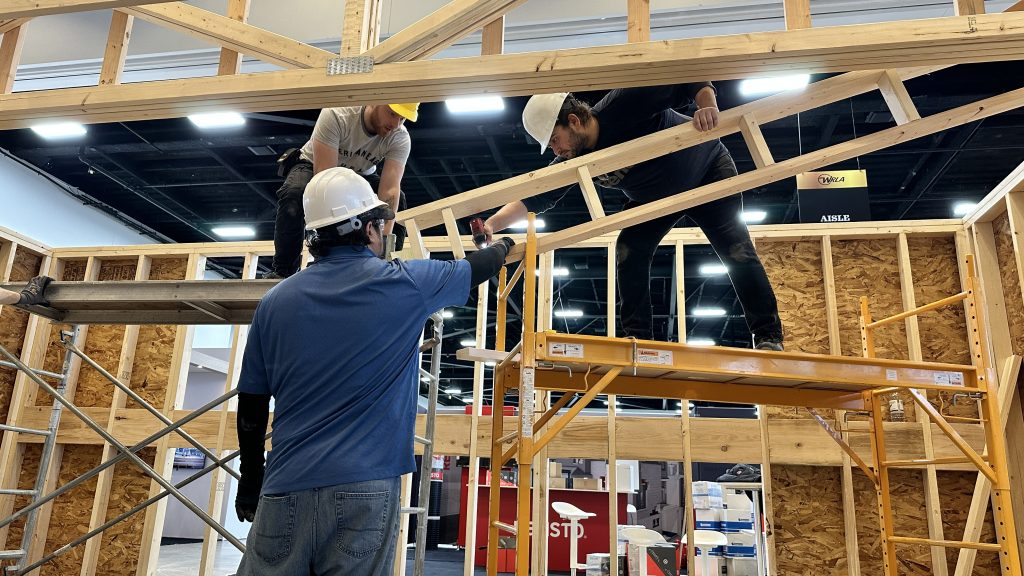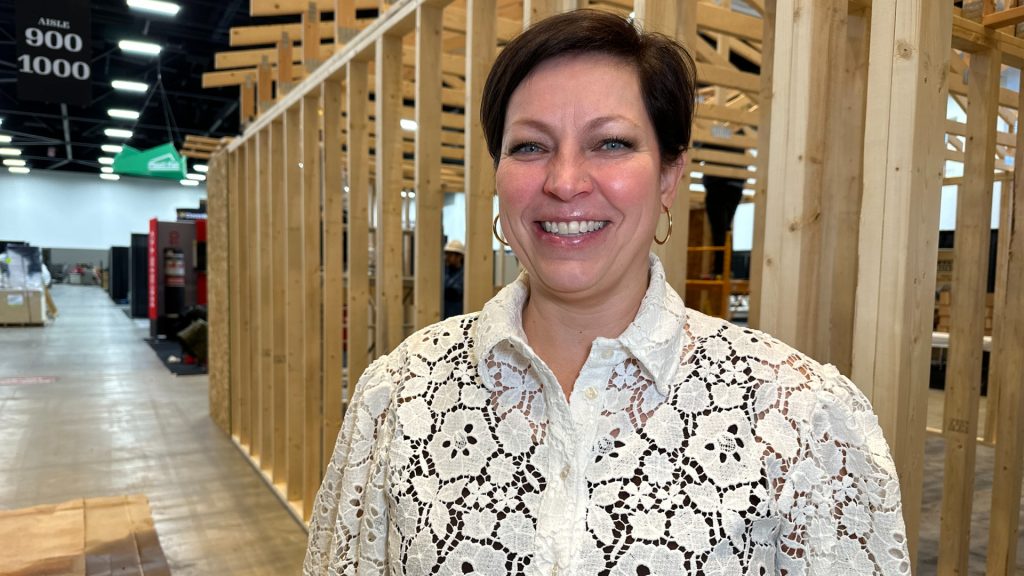Canadian lumber industry grappling with thousands of unfilled jobs
Posted January 17, 2024 5:29 pm.
Last Updated January 17, 2024 7:14 pm.
Canada’s lumber industry is being threatened by a shrinking workforce and growing job vacancies, professionals in that line of work are warning.
Lumber is a big part of the Canadian economy, intrinsically tied to the country’s growing housing needs.
The Western Retail Lumber Association (WRLA) estimates more than 461,000 Canadians have jobs in the lumber industry. But there could be many more.
“Housing need is not going anywhere,” said WRLA president Liz Kovach. “As more people start coming to Canada we’re going to need to continue to build homes.”
Kovach says if the thousands of lumber jobs aren’t filled, the impacts will be felt Canada-wide.

“It’s going to actually impact inflation because when you can’t get materials to where they need to be, it creates a bit of a backlog,” said the Winnipeg native. “We need to be able to build communities. We need to be able to serve people and give good customer service.
“And it really is going to straddle the whole construction industry, because it’s not just us having that issue as well.”
Kovach says the lumber industry in the Prairies equates to $7.2 billion in sales and will only continue to grow.
“In terms of careers, if someone is looking for finance, HR, they want to do customer service (or) if they’re interested in sales, regardless of what you’re looking to do, there’s literally a place here for everyone,” Kovach said.

Lumber supplier Kaitlyn Chimko, with Dakeryn Industries in North Vancouver, says it’s important to get more faces in the lumber industry as people retire and Canada continues to grow. Twenty per cent of Canada’s lumber force is set to retire within five years.
“I think the companies that invest in people and programs are going to be the ones who stay ahead in that race,” said Chimko.
“We have a long way to go and I think the lesson going forward will be to continually invest.”
Chimko calls herself a “child of the industry.” Her father started sweeping sawmills in university and eventually began working for Dakeryn, where she also ended up.
She says the industry cannot be neglected because lumber is “literally everywhere.”
“Lumber goes into every single home, office, grocery store, hospital,” she said.

Joel Hartung, the owner of the LumberZone in Manitoba, confirms there’s “no shortage of work needed in our industry.”
“A lot of time is spent recruiting staff,” Hartung told CityNews. “Finding drivers, delivery staff and people that just want to join the industry and have a career.
Hartung is a board member with the WRLA – which supports people in construction, manufacturing, distribution and retail. He grew up in southern Alberta and says he had an interesting start to his career.
“My father-in-law told me I wasn’t allowed to marry my wife until I was working full time,” he recounted. “I had to quit school. So I quit school (and) got a job and he said, ‘no you’re not going to work there. You’re going to work for me.’ And that was my first opportunity to work at a lumber yard. It was very addictive right from the start.”

He describes work at the LumberZone as physically demanding, such as loading and unloading inventory. There’s also a big emphasis on forming relationships, he says.
“We are talking to our customers multiple, multiple times a day as they have different projects,” he said. “It’s just that relationship-building that I just love. I love getting to know my customers and dealing with their projects and partnering with them.
“A lot of the younger staff get excited about seeing the same customer that treats them well and they have a good relationship.”
And the relationship-building is not just with customers, according to Hartung, but with colleagues too.
“It’s fun to hire a 20-year-old out of high school and have him five years later, maybe married with children, and they are just excited that they can make a living in our industry and they really enjoy it.
“Relationships in this industry are very important. It’s amazing. Lots of people, they maybe don’t work for the same employer, but they stay in the industry and work for other people and the relationships really pay off.”
The WRLA operates from Vancouver Island to northwestern Ontario, and in Canada’s three territories. It is hosting a career fair Friday at Winnipeg’s RBC Convention Centre.








